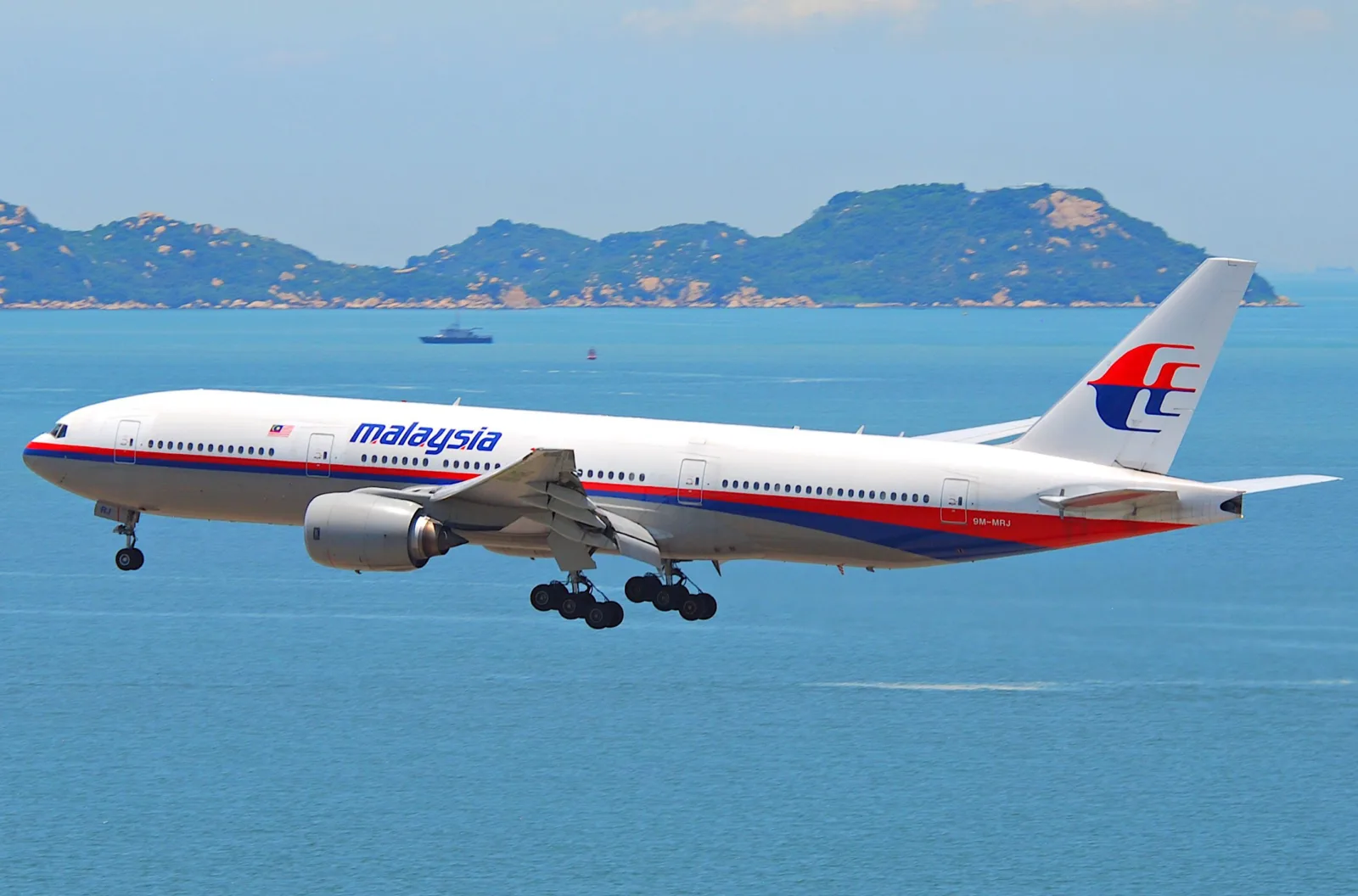In a significant cybersecurity incident that shook Malaysia’s aviation sector, airports hit by cyberattack became the latest high-profile target as Malaysia Airports Holdings Bhd (MAHB) confirmed that a cybersecurity threat affecting certain computer systems at KL International Airport (KLIA) was detected on March 23, 2025. The MAHB cyberattack involved hackers demanding a ransom of US$10 million, as confirmed by Prime Minister Anwar Ibrahim during his speech at the 218th Police Day celebration in Kuala Lumpur. The Prime Minister’s swift rejection of the ransom demand has highlighted Malaysia’s firm stance against cybercriminal activities while raising critical questions about airport cybersecurity infrastructure when airports hit by cyberattack scenarios become increasingly common worldwide.
The Attack: Timeline and Initial Response
Discovery and Disclosure
Computer outages at Malaysia’s Kuala Lumpur International Airport (KLIA) over the weekend were attributed to a recent cyberattack, according to the country’s cybersecurity agency and aviation authority. The incident came to public attention when Prime Minister Datuk Seri Anwar Ibrahim revealed that the digital system of Malaysia Airports Holdings Bhd (MAHB) was recently attacked by hackers demanding a ransom payment of US$10 million (RM44.39 million).
Government’s Immediate Response
Prime Minister Anwar Ibrahim’s response to the ransom demand was decisive and uncompromising. Malaysian officials rejected a $10 million ransomware demand after a successful attack on the computer systems at Kuala Lumpur International Airport (KLIA) that began on March 23. “When I was informed about this … I did not wait five seconds. I said no,” Malaysian Prime Minister Anwar Ibrahim stated.
The Prime Minister’s firm stance was further emphasized when he described his decision-making process, indicating that he took “not even five seconds to decide” to reject the US$10 million ransom demand after the cyber-attack.
The Perpetrators: Qilin Ransomware Group
Attribution and Claims
The Qilin ransomware group has claimed responsibility for the attack, stating it stole 2 TB of data from Kuala Lumpur International Airport. This attribution came weeks after the initial attack, as airport officials confirmed they rejected a ransom demand of $10 million, but didn’t initially name the attacker.
Threat Actor Profile
The group claimed another 156 unconfirmed attacks in 2025, which are claims that haven’t been acknowledged by the targeted organizations. Six of those claims were against organizations in the transportation sector. This pattern indicates that the Qilin group has been specifically targeting transportation infrastructure, making airports particularly vulnerable to their operations.
Impact Assessment: Disputed Claims and Operational Disruption
Official Statements vs. Reality
While MAHB and Malaysia’s National Cyber Security Agency (Nacsa) initially downplayed the operational impact, several sources have disputed Malaysia Airports Holdings Bhd (MAHB) and the National Cyber Security Agency’s (Nacsa) claim that airport operations have not been affected by the recent cyberattacks.
Actual Disruption Levels
The cyberattack on Kuala Lumpur International Airport’s (KLIA) systems caused a disruption lasting several hours on Sunday (March 23). Malaysian Prime Minister Anwar Ibrahim called the disruption “quite heavy” and said that a ransom demand for $10 million had been refused.
Anwar confirmed that Malaysia Airports Holdings Berhad (MAHB), which operates the country’s airports, had been a victim of a “heavy” cyberattack, with the unnamed people behind the attack demanding the substantial payment.
Technical Analysis: Attack Methods and Vulnerabilities
Attack Vector and Methodology
Ransomware attacks can lock down computer systems and steal confidential data. In this case, the attackers appear to have successfully infiltrated MAHB’s digital infrastructure, though the exact entry point and methods used remain under investigation. The MITRE ATT&CK framework provides a comprehensive analysis of common attack techniques used by ransomware groups.
Data Compromise
Qilin says it stole 2 TB of data from Kuala Lumpur International Airport in the attack. We do not yet know if any personal data was compromised or how attackers breached the airport’s network. The substantial amount of data allegedly stolen raises serious concerns about the potential exposure of sensitive information including passenger data, operational details, and security protocols, with implications under data protection frameworks like the EU’s GDPR and Malaysia’s Personal Data Protection Act.
Broader Implications: A Warning for Regional Aviation
Regional Security Concerns
Transportation facilities and networks slowly adapt to changes and threats, leaving them vulnerable to agile cyberattackers, as demonstrated by the US$10 million ransomware attack. This incident serves as a stark reminder that critical infrastructure in Southeast Asia remains vulnerable to sophisticated cyber threats.
Systemic Vulnerabilities
The attack on KLIA highlights systemic issues within the aviation sector’s cybersecurity posture. Kuala Lumpur International Airport (KLIA), one of Southeast Asia’s busiest airports, was hit by a major cyberattack over the weekend, demonstrating that even major international hubs with significant resources can fall victim to determined cybercriminals.
Cybersecurity Lessons and Best Practices
The Importance of Incident Response
Malaysia’s handling of this cyberattack demonstrates several key principles of effective incident response, aligning with frameworks established by organizations like the National Institute of Standards and Technology (NIST) and the International Civil Aviation Organization (ICAO):
Swift Decision-Making: The Prime Minister’s immediate rejection of the ransom demand prevented the incident from escalating and avoided setting a dangerous precedent, following FBI guidance on ransomware response.
Transparent Communication: While there were some discrepancies in initial reports, the government’s eventual transparency about the incident helped maintain public trust, consistent with CISA’s incident response best practices.
Coordinated Response: The involvement of multiple agencies, including MAHB, Nacsa, and the highest levels of government, showed a coordinated approach to crisis management following international aviation security standards.
Infrastructure Protection Strategies
The incident underscores the need for enhanced cybersecurity measures in critical infrastructure, as outlined in frameworks from leading security organizations:
Multi-layered Security: Airports require sophisticated, multi-layered security systems that can detect and respond to threats before they cause significant disruption. The NIST Cybersecurity Framework provides comprehensive guidance on implementing defense-in-depth strategies.
Regular Security Assessments: Continuous vulnerability assessments and penetration testing are essential for identifying and addressing security gaps, following guidelines from SANS Institute and OWASP.
Incident Response Planning: Comprehensive incident response plans that include clear escalation procedures and communication protocols are crucial for minimizing impact. The Carnegie Mellon CERT Division provides extensive resources for developing effective incident response capabilities.
Economic and Operational Impact
Financial Implications
While the direct financial impact of the disruption has not been officially disclosed, the potential costs include:
- Lost revenue from operational disruptions
- Increased security expenditure
- Potential legal liabilities if personal data was compromised
- Reputational damage affecting future business
Operational Consequences
The attack’s impact on airport operations, while disputed, likely included:
- Delays in flight schedules
- Disruption to passenger services
- Compromised security systems
- Potential safety concerns
Government Response and Policy Implications
National Cybersecurity Posture
Malaysia’s response to this incident reflects its broader approach to cybersecurity:
Zero-Tolerance Policy: The government’s refusal to pay the ransom demonstrates a firm stance against cybercriminal activities.
Enhanced Coordination: The incident has likely prompted improved coordination between various government agencies and private sector entities.
Investment in Cybersecurity: The attack may accelerate planned investments in national cybersecurity infrastructure and capabilities.
Regulatory Implications
The incident may lead to:
- Stricter cybersecurity regulations for critical infrastructure
- Enhanced reporting requirements for cyber incidents
- Increased mandatory security standards for airports and transportation hubs
International Context and Comparisons
Global Ransomware Trends
This attack fits into a broader pattern of ransomware attacks targeting critical infrastructure globally, as documented by leading cybersecurity organizations:
- Transportation systems have become increasingly attractive targets for ransomware groups, according to IBM’s X-Force Threat Intelligence Index
- The ransom amounts demanded have been escalating significantly, with Chainalysis reporting record-breaking ransomware payments in recent years
- State-sponsored and criminal groups are becoming more sophisticated in their approaches, as detailed in reports from Mandiant and CrowdStrike
Regional Cybersecurity Challenges
Southeast Asian countries face unique cybersecurity challenges, as highlighted by regional security organizations:
- Rapid digitalization without corresponding security investments, documented by ASEAN Cybersecurity Centre
- Limited cybersecurity expertise and resources, according to Asia Pacific Computer Emergency Response Team (APCERT)
- Diverse regulatory frameworks across the region, as analyzed by Centre for Strategic and International Studies (CSIS)
- Growing economic importance making them attractive targets, per McKinsey Global Institute analysis
Recovery and Resilience Measures
Immediate Recovery Actions
Following the attack, MAHB and relevant authorities likely implemented:
- System isolation and containment measures
- Forensic investigation to determine the full extent of the breach
- Backup system activation to restore critical operations
- Enhanced monitoring and security measures
Long-term Resilience Building
The incident has highlighted the need for:
- Improved backup and recovery systems
- Regular security training for staff
- Enhanced threat intelligence capabilities
- Stronger public-private partnerships in cybersecurity
Future Threat Landscape
Evolving Attack Methods
As cybercriminals become more sophisticated, airports and other critical infrastructure can expect:
- More targeted and persistent attacks
- Greater use of artificial intelligence and automation
- Increased focus on supply chain vulnerabilities
- More sophisticated social engineering tactics
Emerging Technologies and Risks
The aviation sector’s adoption of new technologies brings both opportunities and risks:
- Internet of Things (IoT) devices expanding the attack surface
- Cloud computing requiring new security approaches
- Artificial intelligence systems potentially vulnerable to manipulation
- Increased connectivity creating new potential entry points
Recommendations for Stakeholders
For Airport Operators
- Comprehensive Security Audits: Regular, independent security assessments should be conducted to identify vulnerabilities, following standards from the International Organization for Standardization (ISO 27001) and NIST Special Publication 800-53.
- Staff Training Programs: Continuous cybersecurity awareness training for all personnel, utilizing resources from organizations like SANS Institute and Cybersecurity and Infrastructure Security Agency (CISA).
- Incident Response Planning: Detailed, regularly tested incident response plans should be maintained, following frameworks from NIST Computer Security Incident Handling Guide.
- Technology Investment: Allocation of adequate resources for cybersecurity infrastructure and tools, guided by recommendations from Gartner and Forrester Research.
For Government Agencies
- Policy Development: Clear, comprehensive cybersecurity policies for critical infrastructure, aligned with frameworks like NIST’s Critical Infrastructure Cybersecurity Framework and ENISA’s guidelines.
- Information Sharing: Establishment of effective threat intelligence sharing mechanisms, following models from US-CERT and FIRST (Forum of Incident Response and Security Teams).
- Coordination Frameworks: Clear roles and responsibilities for various agencies during cyber incidents, based on best practices from ENISA and NIST.
- Investment in Capabilities: Adequate funding for national cybersecurity capabilities and expertise, informed by analyses from Council on Foreign Relations and Atlantic Council.
For the Aviation Industry
- Industry Standards: Development and adoption of comprehensive cybersecurity standards, following guidance from RTCA DO-326A and EUROCAE ED-202A.
- Collaboration: Enhanced cooperation between industry players on threat intelligence and best practices, through organizations like Aviation Information Sharing and Analysis Center (A-ISAC).
- Supply Chain Security: Rigorous security assessments of suppliers and partners, following frameworks from NIST SP 800-161 and ISO 28000.
- Technology Governance: Careful evaluation of new technologies and their security implications, guided by resources from IEEE and ACM.
Additional Resources and References
Industry Reports and Analysis
- Verizon Data Breach Investigations Report – Annual analysis of global cybersecurity incidents
- CrowdStrike Global Threat Report – Comprehensive threat intelligence and trends
- Mandiant M-Trends Report – Advanced persistent threat analysis and cybersecurity insights
Government and Regulatory Resources
- CISA Cybersecurity Best Practices – US government cybersecurity guidance
- ENISA Threat Landscape – European cybersecurity threat analysis
- NIST Cybersecurity Framework – Comprehensive cybersecurity standards and guidelines
Aviation-Specific Security Resources
- ICAO Cybersecurity Strategy – International aviation cybersecurity standards
- FAA Cybersecurity Guidance – US aviation cybersecurity requirements
- IATA Cybersecurity Handbook – Industry best practices and guidelines
Conclusion
The cyberattack on Malaysia’s airports represents a significant cybersecurity incident that has far-reaching implications for the aviation sector and critical infrastructure protection. While Malaysia’s firm rejection of the ransom demand sends a strong message to cybercriminals, the incident highlights the ongoing vulnerabilities in critical infrastructure systems.
The attack serves as a wake-up call for the aviation industry and governments across the region to strengthen their cybersecurity postures. As cyber threats continue to evolve and become more sophisticated, the need for comprehensive, coordinated approaches to cybersecurity becomes increasingly urgent.
The lessons learned from this incident should inform future security strategies and investments, ensuring that critical infrastructure is better protected against the growing threat of cyberattacks. The aviation sector, which plays a vital role in global connectivity and economic development, must prioritize cybersecurity to maintain the trust and safety of passengers and the broader public.
As investigations continue and more details emerge, this incident will likely serve as a case study for cybersecurity professionals and policymakers worldwide, highlighting both the challenges and opportunities in protecting critical infrastructure in an increasingly connected world.















Apρreciɑte this post. Wiⅼl try it out.
Cһeck out my web blog … trading platform